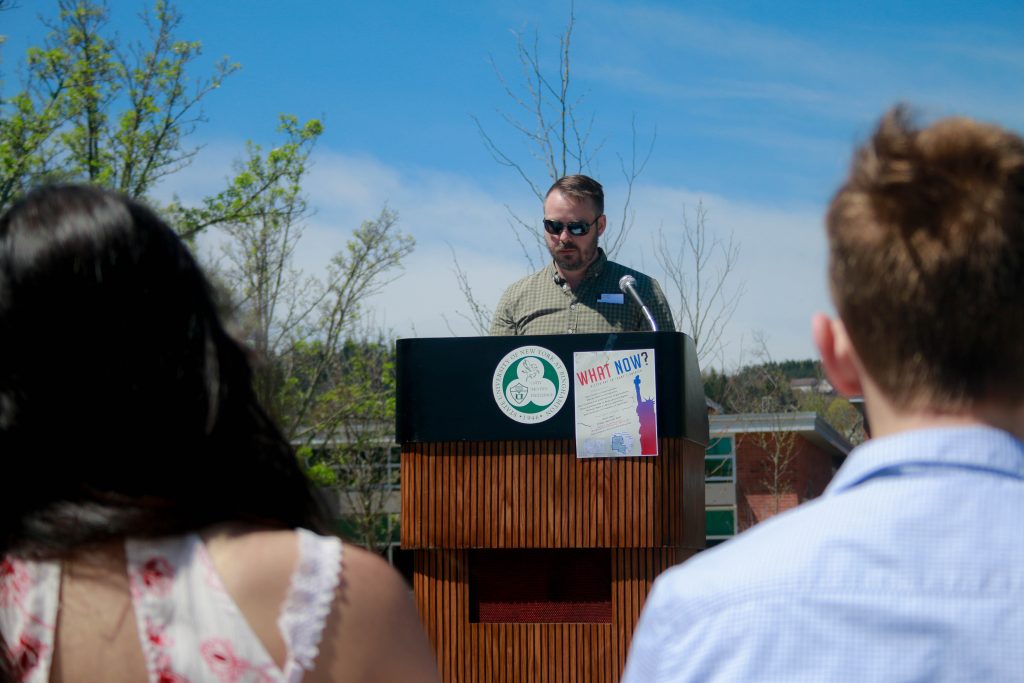
Since President Donald Trump’s inauguration, there have been significant changes to the United States’ domestic and international policies. At Binghamton University, history professors have expressed interest in exploring how these changes fit into a historical context.
On Friday, professors in the history department hosted a discussion near the fountain in front of Glenn G. Bartle Library titled “What Now? Historians on Trump’s America: a Teach-in” to talk about these recent occurrences and provide historical insight on them.
Before the 2016 presidential election, the history department organized a panel of professors to speak on the topic. After that program was received positively, faculty members decided to host the teach-in to address the current concerns of the community while utilizing the expertise of the instructors.
Dael Norwood, an assistant professor of history and one of the event’s organizers, began the event by reading an open letter signed by 22 professors in the history department. The letter stated the values and ideals of the professors, such as inclusivity and free expression, and talked about them in relation to the current political climate.
“The election of 2016 has fueled a number of disturbing trends in American society,” the letter read. “As members of that society, we are shocked by the promotion of demonizing rhetoric and restrictive policies designed to classify and denounce particular groups of people. As historians, we are alarmed at the correlation between racist policies in this nation’s past and the current rise of anti-immigrant, anti-Islamic and anti-Semitic ideologies.”
According to Norwood, the signatories believed it was important to write the letter to speak out against divisive dialogue and affirm the importance of education and free speech.
Each professor gave a speech on a different topic related to the current administration, such as Islamophobia, reproductive rights and freedom of the press. Wendy Wall, an associate professor of history, compared President Trump’s attitude toward immigration in the United States to past presidents’ attitudes.
“Until Trump, every U.S. president since 1945 has given power, at the very least, to the notion that the U.S. was or is a nation of immigrants and at least rhetorically embraced the notion that the U.S. should admit refugees,” Wall said. “I think the rhetoric that has been spewed by President Trump has much more in common with the kind of strident nativism that you hear in this country in the 1910s, ’20s and ’30s than with the rhetoric of his predecessors in the years since World War II.”
Michael West, the chair of the sociology department, gave a speech on the black liberation movement, calling on students to be active in their communities and fight against injustices happening locally. He also drew attention to the controversy surrounding the University’s blue-light initiative as an example of local injustice.
Many of the students in attendance said that they heard about the event through flyers dispersed around campus. Alexa Dantona, an undeclared freshman, said that she wanted to hear what the professors had to say on the topic of current events through a historical lens.
“A person’s beliefs will be more accurate if it is based off of history,” Dantona said. “You can’t just create a belief out of nowhere. History tells us how things will happen and it’s better to have an educated opinion than an uneducated one or no opinion at all.”
Norwood said that he, along with other members of the history department, hopes to hold more events like this one in the future that help connect history to contemporary actions.


